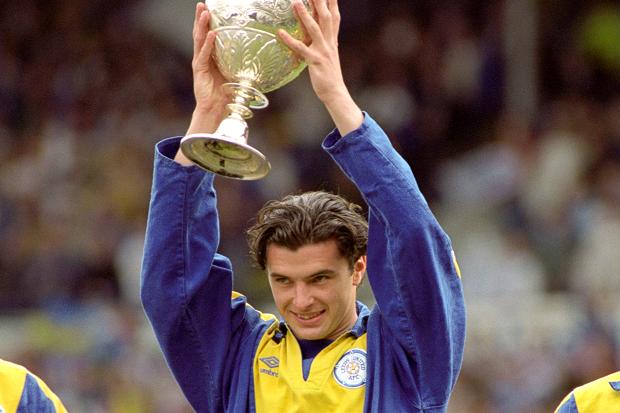Gary Speed: smears, lies and Fleet Street’s desperation
 WHEN Gary Speed died the tabloid press reported the facts and little more. There was some emoting and grandstanding grief on twitter and the therapy industry cop-opted the dead man for their own purposes. The PFA glamorised his death as being something unique to football. But the tabloids were relatively retrained. Why? Answer: the Leveson Inquiry into media standards.
WHEN Gary Speed died the tabloid press reported the facts and little more. There was some emoting and grandstanding grief on twitter and the therapy industry cop-opted the dead man for their own purposes. The PFA glamorised his death as being something unique to football. But the tabloids were relatively retrained. Why? Answer: the Leveson Inquiry into media standards.
It is believed Gary Speed took his own life. He was 42. He left behind a wife and two children. And that is where the facts end.
The Times editorial is worried, saying that we know “possibly a great deal less than there is to know”.
Do we have a right to know why Gary Speed committed suicide, as it appears? No. Can you sense in that Times line the side-ways eye of a cynic tapping his nose?
In the past, tabloids would have hunted this story down. Doing this now, however, might not seem wise. The press is, after all, under investigation. And, because some newspapers have failed to make the public interest case for their stories, they have lost confidence in their ability to do so. Many newsrooms are also, rightly, questioning their methods. As a result, this story is being left alone.
True enough. The only newspaper speculation has been on whether Gary Speed suffered from depression.
It is difficult to think of something more delicate, more deserving of tactful handling, than this awful death of a young father. It could be argued that no possible public interest could be served by reporting any more on this subject. But we believe that this judgment would be wrong.
Go on:
Mr Speed was a person of power and influence. Almost certainly he meant more to more Welsh people than the Secretary of State and his reach went far beyond Wales.
But Mr Speed never campaigned for elected office. He offed no moralising on how life should be lived. He stood only for better football. His death was not hypocritical.
There is also the manner of his death. Suicide is, or at least should be, a matter of public concern. And since his death, the internet has lit up with unsubstantiated rumours. Mr Speed has been smeared, not by the press but in its absence.
No. Rumour is only that. If anyone has a confession to make or a story to tell that they believe would be in the public interest, the internet allows them to do so. Mr Speed has not been smeared. The word smear suggests a permanent smudging of the man’s clean-lined name. These rumours lack that power. They are easily ignored and quicker forgotten.
There is a legitimate public interest in responsible reporting of what happened and why. This does not mean that his entire life should automatically be open for scrutiny and publication. It does mean that reporting should be undertaken, proportionate to the story. This is necessarily a matter of judgment, and a difficult judgment too. It is complicated because the extent of public interest in Mr Speed’s death is impossible to calculate until after reporting work has begun.
It depends what the report says. The tabloid press failed because they too often print the sensation and then follow it up with a small apology of facts got wrong. And you can’t libel the dead. The public interest in Gary Speed’s death would be huge. All the press need do is stick to the facts and present them as such. The public are grown up enough to make what they will of it.
…it is critical, too, that we do not live in a society in which rumour takes the place of reporting, and misinformation triumphs over truth.
Well, quite. Rumour has not taken the place of reporting – it is just another form of bad reporting.
Posted: 24th, December 2011 | In: Sports Comments (4) | TrackBack | Permalink


